New travel rules for Britain, France: How they affect Aussies
More travel restrictions have been eased following the scrapping of Britain’s pre-departure test and France hints UK travel ban will be loosened.
Coronavirus
Don't miss out on the headlines from Coronavirus. Followed categories will be added to My News.
More travel restrictions were eased on Sunday, following the scrapping of the pre-departure test.
Since Friday, Brits have been able to return to the UK without needing to have a Covid test to enter the country, provided they are vaccinated.
The isolation rule - which required arrivals to isolate until they received their day two test result - has also been scrapped.
And from Sunday, the day two test rules will change and Brits will be able to take a lateral flow test instead of a PCR test, with the former must cheaper.
While the NHS lateral flow tests can’t be used for travel purposes, they cost around £22 ($A41) from private medical firms - while PCRs at least £60 ($A113) more.
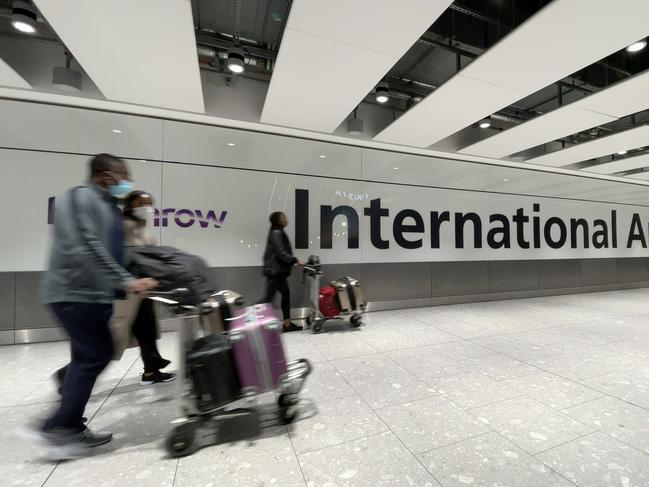
The government website states: “If you qualify as fully vaccinated for travel to England, and you will arrive in England after 4am (GMT), Sunday 9 January, you can choose to take a lateral flow test instead of a PCR test after you arrive in England.
“If you qualify as fully vaccinated for travel to England, and you will arrive in England after 4am, Sunday 9 January, you can choose to take a lateral flow test instead of a PCR test after you arrive in England.”
However, while travellers don’t have to isolate while they wait for their result, they will have to take a PCR test if it comes back positive.
The website continues: “If you take a lateral flow test and test positive, you will need to self-isolate and take a free PCR test.”
The free PCR tests can be used via the NHS.
These new rules don’t apply to any arrivals who aren’t vaccinated.
This is also different to the other rules in place in the UK from January 11, which no longer mandates a PCR test for anyone who tests positive with a lateral flow in the UK.
Instead, people in England can self-isolate for a week as long as they are negative on day six and seven.
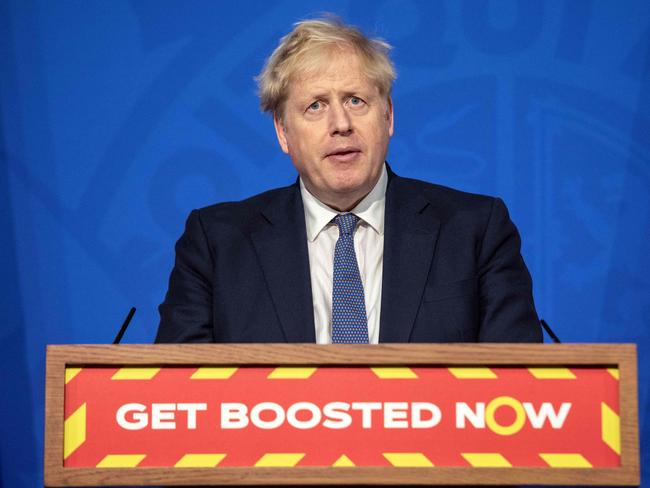
It comes as UK PM Boris Johnson continued with his ‘Plan B’ to stop Omicron from spreading, telling people to work from home and wear masks indoors for another three weeks.
The British Prime Minister ruled out another full lockdown telling Tory MPs that “lockdowns are not cost free”.
“They impose a devastating toll on our physical and mental wellbeing, on our businesses, jobs and livelihoods, and, worst of all, on the life chances of our children,” he said.
“So this government does not believe we need to shut down our country again.”
He stressed to Cabinet that Omicron is much milder than previous strains following a string of studies finding it cuts the risk of serious illness by up to 70 per cent.
He told parliament: “So in response to the latest data, the Cabinet agreed this morning that we should stick with Plan B for another three weeks, with a further review before the regulations expire on 26 January.”
“We are experiencing the fastest growth in Covid cases that we have ever known, with over 218,000 cases reported yesterday, although that included some delayed reporting.
“And potentially of greatest concern, case rates are now rapidly rising among the older and more vulnerable, including doubling every week among those over 60, with the obvious risk that this will continue to increase the pressures on our NHS.”
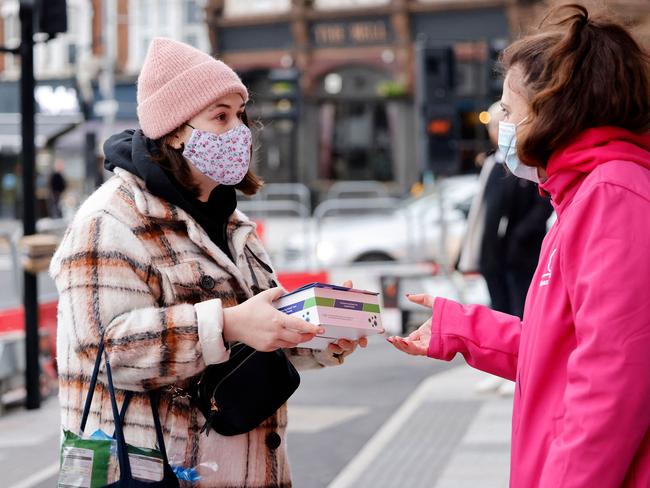
The PM is also toughening the domestic definition of “fully-vaccinated” to include boosters to help turbocharge the rollout and beat back Omicron, The Sun reports.
It means soccer fans and nightclubbers will soon need all three jabs on their Covid passport.
But he promised it will not come into force until everyone has had a realistic chance of getting their boosters.
Mr Johnson said it was “absolutely crazy” that people were not taking up booster appointments, amid claims two million were still available this week.
He stressed that despite the NHS going on a “war footing” and there should be no need to “shut down our country again”.
He said: “I would say we have a good chance of getting through the Omicron wave without the need for further restrictions - and without the need certainly for a lockdown.”
The PM said he would recommend to Cabinet tomorrow that the nation should retain Plan B measures of masks, working from home and Covid passes.
He was backed by chief medic Chris Whitty, who confirmed that there is no sign of a “surge” in mortality rates and said that boosters offer 88 per cent protection against needing hospital treatment.
FRANCE TO CHANGE TRAVEL RULES, LATEST EU REQUIREMENTS
France has hinted its UK travel ban will soon be loosened as an increasing number of countries indicate Brits may soon be welcome.
According to The Sun, French ministerial cabinet members have agreed to lift rules preventing some Brits from entering the country, despite more than 330,000 new Covid cases recorded locally.
Spokesperson for the French Government, Gabriel Attal, says essential workers are now permitted to travel to France.
He acknowledged that this will come as relief for many looking to visit France on a working capacity after the “list of compelling reasons, notably professional” was extended.
Many are still eagerly awaiting more information as to when the rules will be changed for tourists.
France announced the travel ban on December 16, stating that all arrivals must have an “essential reason to travel to, or come from, the UK, both for the unvaccinated and vaccinated”.
At the time, this did not include visits for leisure or professional reasons.
As the UK moves to loosen its expectations of travellers amid the Omicron outbreak, chances at holiday plans going ahead are becoming more likely.
WHERE BRITS STAND
Brits are still banned from a number of countries almost two years after the pandemic began but as a stronger understanding of the risks are considered.
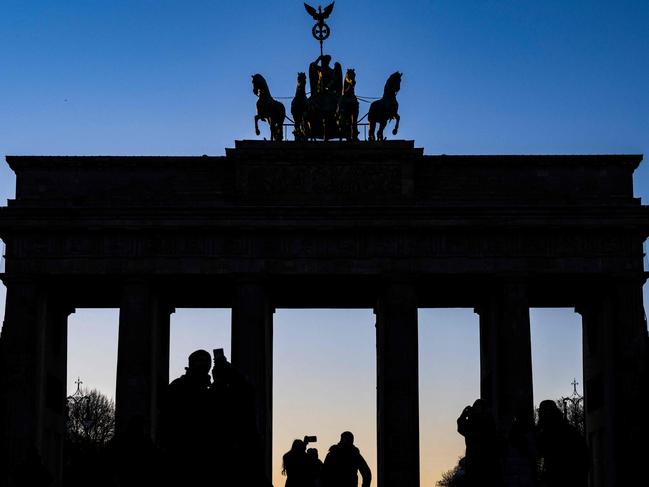
Germany
Germany has recently reopened to Brits, after it imposed strict rules before Christmas.
Vaccinated Brits can now enter the country by showing proof of vaccination.
Unvaccinated Brits may only enter Germany if they are a German citizen or resident, if they are married to a German citizen or resident, or if they have an urgent need to travel.
For Brits eligible to enter Germany who are not fully vaccinated, must provide evidence of a negative Covid test result.
They must then spend 10 days in quarantine, with the option of testing to release after five days.
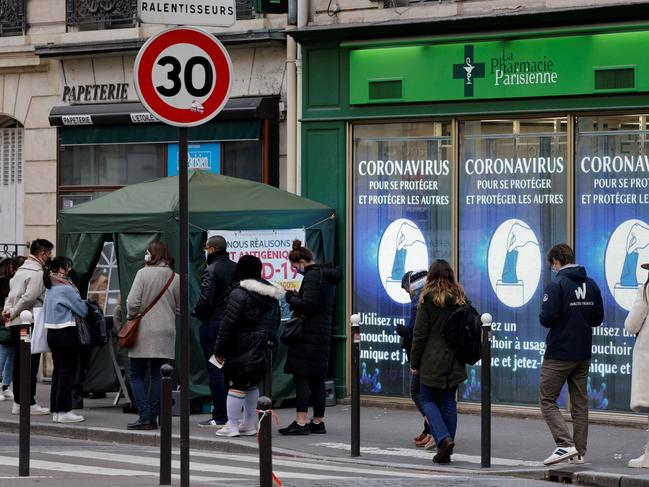
France
France has confirmed that it will loosen travel restrictions for Brits.
However, it is not yet known when restrictions will be lifted.
Currently, only Brits travelling for essential reasons can visit France, regardless of whether they are vaccinated.
Travellers with an essential reason, for example, to see a dying relative, must present a negative PCR or antigen test result taken within 24 hours of departing.
Upon arrival, you must isolate for 48 hours, after which you must show a negative PCR or antigen test to exit isolation.
Without a negative test, you must isolate for 10 days.
Arrivals will need to give contact details to the French authorities and complete a sworn statement confirming they’re not suffering from Covid symptoms.
Everyone must wear face masks indoors and on public transport.
Netherlands
The Dutch authorities classify the UK as a ‘very high risk area’.
Fully vaccinated Brits must provide proof of vaccination and a negative Covid test.
All travellers from the UK, irrespective of their vaccination status or possession of a negative test, must quarantine for 10 days.
This can be reduced if the person receives a negative test result from the Dutch authorities on day five.
UK nationals who are legally resident in the Netherlands can re-enter the country regardless of their vaccination status, but will need to show a residency permit or a certificate of application.
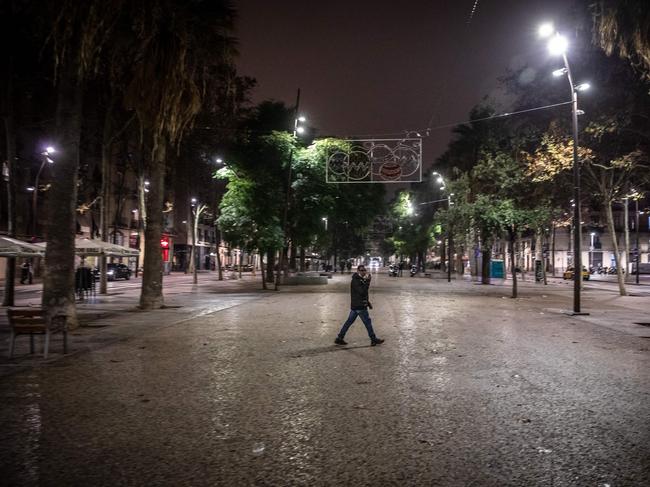
Spain
Only vaccinated Brits can enter Spain and they do not need to test or quarantine.
To enter, you must show proof of being fully vaccinated, and your second jab must have been at least two weeks before you travel.
Passengers must fill out an online form and may be subject to a temperature check, visual health assessment, or testing on arrival.
Children under the age of 12 do not need to show proof of being fully vaccinated to enter Spain.
Portugal
Brits can enter Portugal however must fill in an online passenger locator form.
To get on the plane, Brits aged 12 and over must have taken an antigen test within 48 hours of departure, or a PCR test within 72 hours of departure.
If your temperature is 38C or over or you show signs of being unwell, you may have to take a Covid test and wait at the airport until you get the result.
Cyprus
The UK is on Cyprus’ Red List as the country tries to kerb the spread of Covid.
All travellers aged 12 and above arriving into Cyprus must complete an online form and have a negative PCR test result taken within the 48 hours before departure.
Travellers must then take a second PCR test as soon as they land at the airport in Cyprus.
Brits must self-isolate in their accommodation until they receive their test result - which should be within three hours.
If the result is positive, they must remain in isolation and await instructions from the Ministry of Health.
If the result of the airport PCR test is negative, Brits must complete daily self-tests for five days.
If any of those test results are positive, they must contact the Ministry of Health.
After they have been in Cyprus for 72 hours, and provided they have negative self-test results from the previous days, they must have a rapid test at a mobile unit of the Ministry of Health. This is free for those presenting a boarding pass at the testing site.
Children under the age of 12 are exempt from testing.

Italy
Vaccinated Brits can enter Italy without needing to self-isolate.
They must fill in a passenger locator form before arrival and show proof of a negative PCR or antigen test taken within 48 hours before entering Italy.
Unvaccinated Brits must do the same, but in addition, must notify the Italian authorities of their entry into the country.
They must then travel to their final destination in private transport, self-isolate for five days, and take another Covid test at the end of the isolation.
Children under 18 do not need to quarantine if they are travelling with a fully vaccinated parent and have a negative Covid test.
Regardless of your vaccination status, anyone arriving in Italy may be subject to random Covid testing on arrival until January 31.
Children under the age of six are exempt from testing.
Greece
All Brits aged six and above must fill in a passenger locator form before arrival in Greece, and must show proof of a negative PCR or antigen test.
Arrivals into Greece may be required to have a rapid Covid test. If you test positive, you and those you are travelling with will have to self-isolate in a quarantine hotel provided by the Greek state.
The length of time you need to isolate depends on your vaccination status.
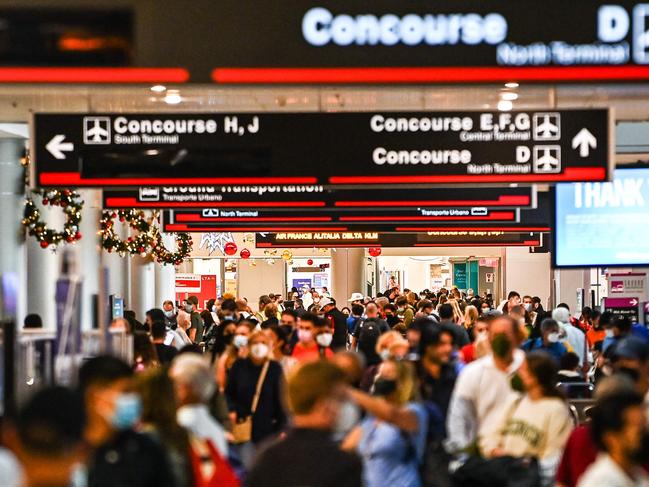
US
Vaccinated travellers heading to the United States must show a negative antigen or PCR test taken within one day of departure.
Unvaccinated Brits cannot enter the US.
Face masks are mandatory on planes, trains, buses and at airports.
Turkey
All Brits arriving in Turkey aged six and over must complete an online form.
Those aged 12 and over must then prove that they are either fully vaccinated, recently recovered from Covid, or show a negative PCR or antigen test.
All arrivals will be subject to a medical evaluation for symptoms of Covid, including temperature checks.
Arrivals may also be subject to random PCR testing.
New Zealand
It has been a frustrating time for Kiwis stuck overseas hoping to go home to New Zealand.
The three-stage border system was expected to allow citizens and visa holders from Australia into the country in January, followed by New Zealanders based elsewhere internationally and then open the border to all tourists.
But since the latest variant, the restrictions are in place until at least the end of February.
— With The Sun.




